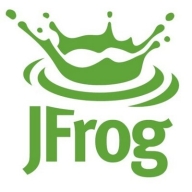

Black Duck and JFrog Xray are competing products in the realm of open-source management and security. Data suggests that while Black Duck users appreciate its expansive security features and integrations, JFrog Xray is favored for its comprehensive scanning capabilities and ease of integration with CI/CD pipelines, offering a more robust feature set.
Features: Black Duck offers detailed policy management, an extensive vulnerability database, and comprehensive reporting and alerting systems. JFrog Xray provides deep artifact scanning capabilities, seamless integration with existing workflows, and is recognized for its ecosystem compatibility and performance efficiency.
Room for Improvement: Black Duck could improve its customer support depth, the integration process, and reduce initial setup complexity. JFrog Xray can enhance its security features, add more robust reporting options, and improve scalability to better handle large enterprises.
Ease of Deployment and Customer Service: Black Duck provides a straightforward deployment process but may require more integration time. Their support services are responsive but sometimes seen as lacking depth. In contrast, JFrog Xray offers faster deployment thanks to its cloud-based solutions, supported by a strong customer service network.
Pricing and ROI: Black Duck typically incurs higher initial setup costs but promises substantial long-term ROI through its advanced security measures. JFrog Xray offers competitive pricing and may present a quicker ROI due to its efficient deployment and integration benefits, making it an attractive choice for businesses looking to streamline operational costs and enhance security swiftly.


Organizations use Black Duck for compliance, internal audits, license management, and security, scanning software to identify vulnerabilities, non-compliant code, and dependencies in open-source projects.
Black Duck integrates into CI/CD pipelines and DevSecOps processes, helping multiple industries detect and handle risks associated with open-source usage. Users leverage it for source and binary analysis to ensure security and compliance before software release. Automatic component analysis, effective vulnerability scanning, and a comprehensive knowledge base are some of its valuable features. Despite needing improvements in scanning speed, UI, and documentation, Black Duck remains crucial for ensuring open-source security and compliance.
What are Black Duck's most important features?
What benefits or ROI should users look for in reviews?
Black Duck is implemented by industries ranging from finance to healthcare, addressing security and compliance in open-source usage. Financial institutions employ it to manage license risks and ensure audit readiness. Healthcare organizations use it to comply with stringent data protection regulations, ensuring patient data security and privacy. Tech companies integrate Black Duck within CI/CD pipelines to maintain the security and compliance of software products before release. Its deployment varies, tailored to meet the specific risk management and compliance needs dictated by each sector's regulatory environment.
JFrog is on a mission to enable continuous updates through Liquid Software, empowering developers to code high-quality applications that securely flow to end-users with zero downtime. The world’s top brands such as Amazon, Facebook, Google, Netflix, Uber, VMware, and Spotify are among the 4500 companies that already depend on JFrog to manage binaries for their mission-critical applications. JFrog is a privately-held, global company, and is a proud sponsor of the Cloud Native Computing Foundation [CNCF].
If you are a team player and you care and you play to WIN, we have just the job you're looking for.
As we say at JFrog: "Once You Leap Forward You Won't Go Back!"
We monitor all Software Composition Analysis (SCA) reviews to prevent fraudulent reviews and keep review quality high. We do not post reviews by company employees or direct competitors. We validate each review for authenticity via cross-reference with LinkedIn, and personal follow-up with the reviewer when necessary.